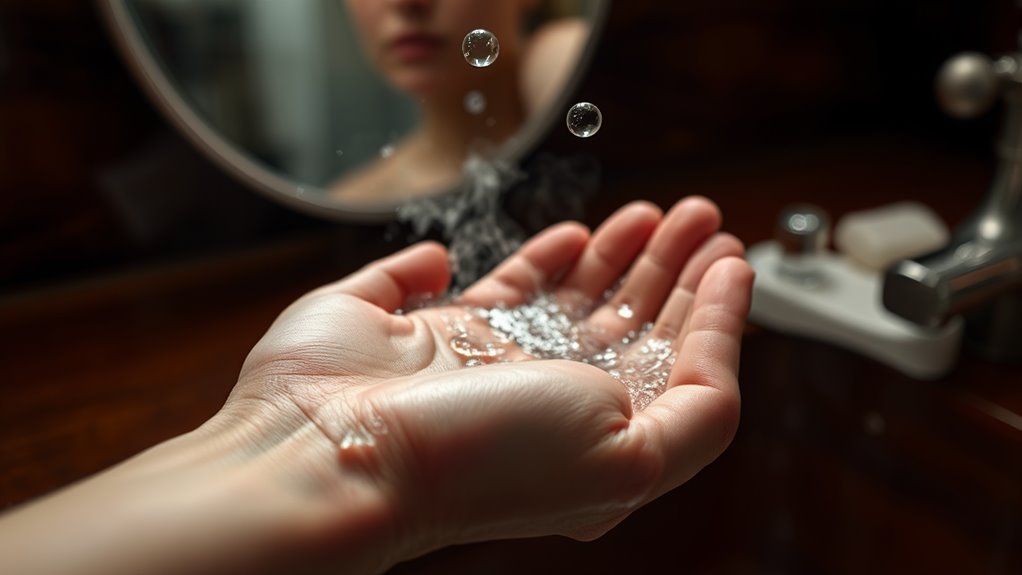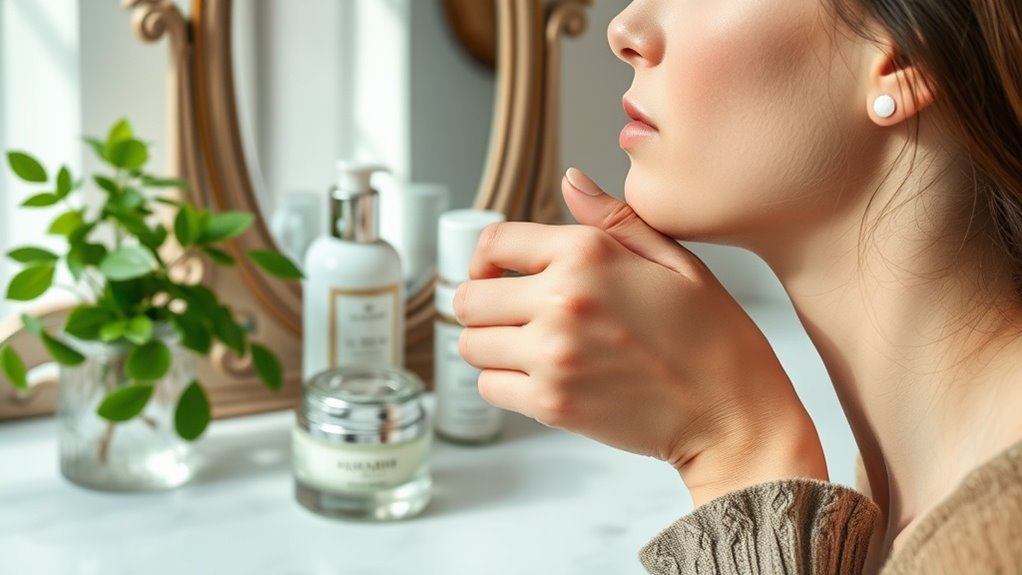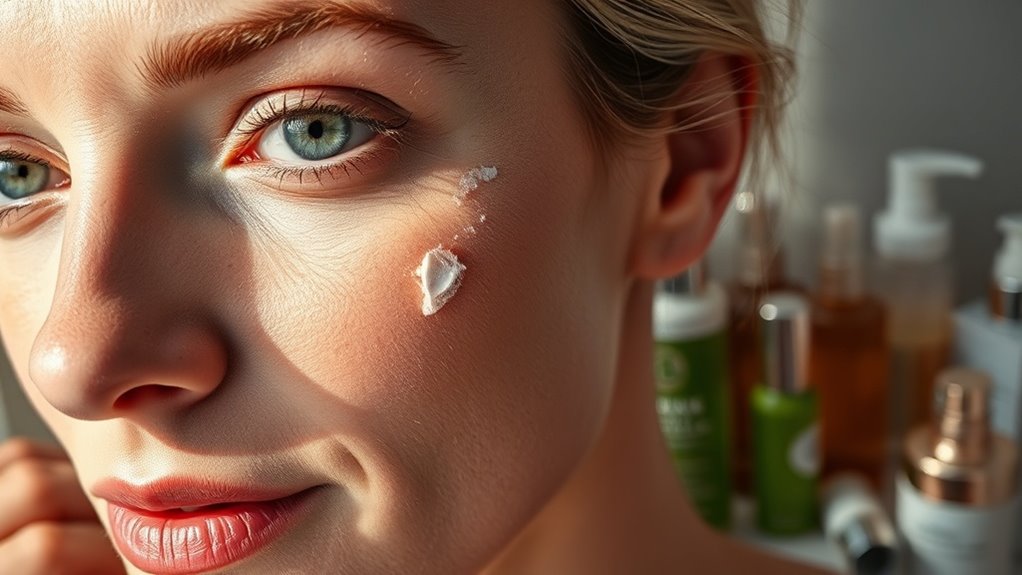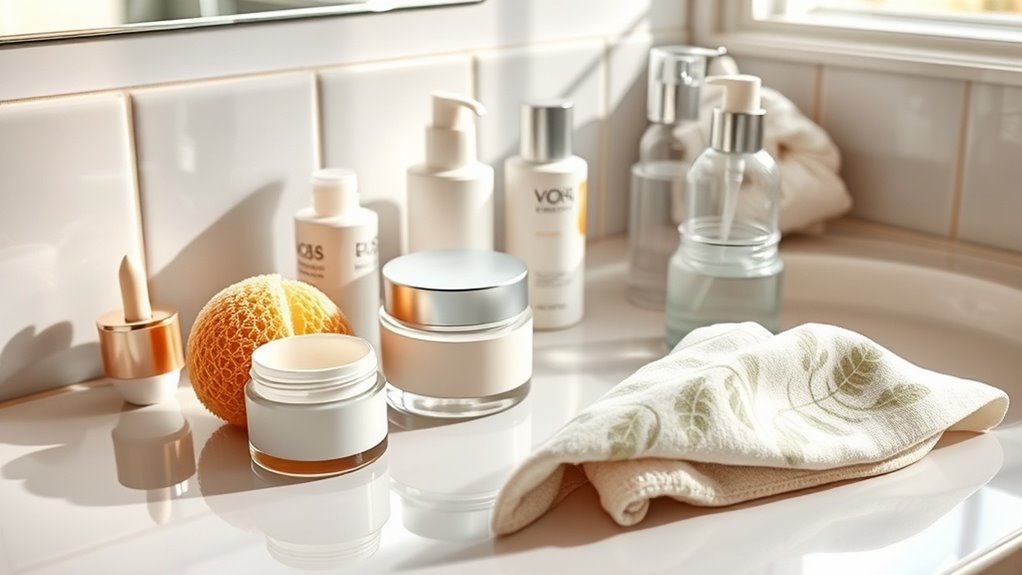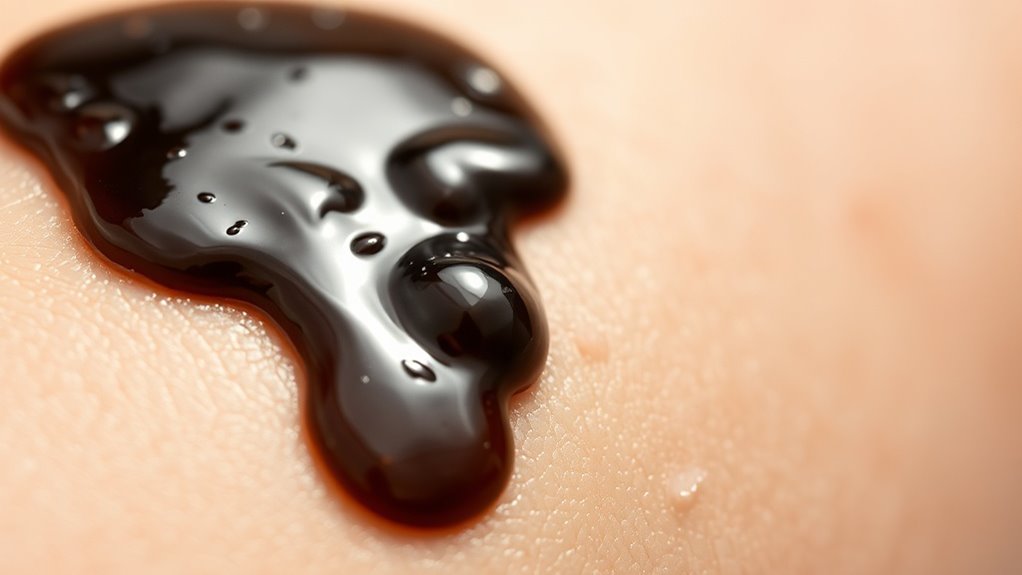Why Using Hot Water May Be Ruining Your Skin
You might not realize it, but the hot water you enjoy in showers or baths could be damaging your skin more than you think. It strips away essential natural oils, disrupting your skin’s protective barrier. This can lead to dryness and irritation, making your skin more vulnerable to environmental stressors. Understanding the full impact of hot water on your skin can help you make better choices for your skin health. What alternatives can you consider?
Key Takeaways
- Hot water strips natural oils from the skin, leading to dryness and irritation.
- It disrupts the lipid barrier, increasing skin permeability and allowing irritants to enter.
- Using hot water can exacerbate conditions like eczema and psoriasis due to increased inflammation.
- Frequent exposure to hot water contributes to chronic dryness, flakiness, and a dull appearance.
- Opting for lukewarm water and gentle cleansers helps preserve skin moisture and overall health.
The Impact of Hot Water on Skin’s Natural Oils
When you expose your skin to hot water, it can strip away its natural oils, leading to dryness and irritation.
This hot water skin damage occurs because the heat disrupts the lipid barrier that protects your skin.
Without these oils, your skin loses moisture, making it more susceptible to environmental stressors.
You might notice rough patches or increased sensitivity over time.
Moreover, frequent exposure to hot water can exacerbate conditions like eczema or psoriasis, worsening your skin’s overall health.
To maintain a healthy complexion, consider using lukewarm water instead, preserving your skin’s natural oils and preventing unnecessary damage. Additionally, using gentle cleansing practices can significantly help in maintaining your skin barrier’s integrity.
Disruption of the Skin Barrier
The skin barrier acts as your body’s first line of defense against environmental aggressors, and hot water can severely compromise its integrity. When you expose your skin to high temperatures, you risk damaging the lipid matrix that holds skin cells together. This disruption can lead to increased permeability, making it easier for irritants to penetrate. Additionally, a compromised skin barrier can result in subtle signs that indicate it needs attention.
| Effect | Description | Consequence |
|———————|————————————–|—————————|
| Lipid Depletion | Loss of essential fats | Weakened barrier function |
| Increased Permeability| Allows irritants to enter | Higher irritation risk |
| Inflammation | Triggers immune response | Redness and discomfort |
| Sensitivity | Heightened reaction to products | Allergic reactions
The Link Between Hot Water and Dryness
Hot water can significantly contribute to skin dryness by stripping away essential moisture and oils.
When you expose your skin to high temperatures, it disrupts the lipid barrier, which plays a crucial role in retaining hydration.
This loss of natural oils leaves your skin feeling tight and parched.
Additionally, hot water can increase the evaporation rate of moisture from your skin’s surface, making it even harder to maintain proper hydration levels.
Over time, this can lead to chronic dryness, flakiness, and a dull appearance. Signs of over-cleansing can also manifest, indicating that your routine may be further exacerbating the issue.
To protect your skin, consider using warm water instead and follow up with a good moisturizer.
Hot Water’s Role in Skin Irritation
Exposing your skin to hot water not only leads to dryness but can also provoke irritation.
This irritation can manifest in various ways, negatively affecting your skin’s health.
Here are three key reasons why hot water may be harmful:
-
Compromised Barrier: Hot water strips away natural oils, weakening your skin’s protective barrier.
-
Inflammation: The heat can trigger inflammatory responses, leading to redness and discomfort.
-
Sensitivity: Repeated exposure increases skin sensitivity, making it more prone to reactions and irritation.
Additionally, maintaining proper hydration through gentle cleansing is essential for preventing over-drying, which can further protect your skin from irritation.
Alternative Practices for Healthy Skin
Maintaining healthy skin requires mindful practices that prioritize hydration and protection.
First, incorporate a gentle cleanser suited for your skin type to avoid stripping essential oils. Next, apply a moisturizer containing hyaluronic acid to lock in hydration. Don’t forget sunscreen; it’s crucial to protect your skin from UV damage. Additionally, consider incorporating antioxidants, like vitamin C, to combat environmental stressors. Regular exfoliation using mild scrubs can help remove dead skin cells, promoting a brighter complexion. Lastly, drink plenty of water to keep your skin hydrated from the inside out.
These practices create a solid foundation for maintaining vibrant, healthy skin, and common mistakes in face washing can undermine these efforts.
Recommendations for Optimal Water Temperature
When it comes to water temperature for skin care, finding the right balance is essential for maintaining skin health.
Finding the right water temperature is crucial for healthy skin care.
Using water that’s too hot can strip natural oils, leading to dryness and irritation.
To optimize your skin care routine, consider these recommendations:
-
Lukewarm Water: Aim for a temperature around 98-100°F (37-38°C) to cleanse effectively without harming your skin barrier.
-
Limit Time: Reduce exposure to water during showers or washes to 10-15 minutes to prevent moisture loss.
-
Hydration Post-Wash: Always follow up with a moisturizer to lock in hydration and protect your skin. Additionally, using lukewarm water can help avoid common face washing mistakes that may compromise your skin’s health.
